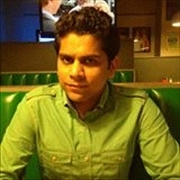Tutor HuntResources Maths Resources
Teaching Maths
Date : 18/10/2013
Author Information

Uploaded by : Gull
Uploaded on : 18/10/2013
Subject : Maths
To this Laurel responds by pointing out the examples given in the video, and the illustrations the author has given about how some important concepts can be simply taught by building daily-life examples which the child can relate to, and build a mental picture where they can attach the concepts to a picture they are familiar with. This helps them to remember the concept by remembering the picture, making it simpler. And with the technology available to us today, the communication process can be changed to meet the learning needs of pupils.
Hardy, on the other hand believes that if students are asked to articulate the logic for doing a particular type of sum (say, how to solve a quadratic equation), they would be able to do this only if they have understood the concept very well. Sort of saying that in trying to teach a concept to someone else, one is also able to learn the concept quite well, and so, there is definitely a need for language. While Laurel didnt disagree with this, he believes that that language should not be central to the process, rather, it should be peripheral. Or, that this opportunity could be taken to integrate the teaching of mathematics and language through familiar, daily-life scenarios which children can relate to.
And this is where they decided to agree to disagree. And what would you think?
This resource was uploaded by: Gull
Other articles by this author
- Ratios
- MORE PIRATES, LESS GLOBAL WARMING . WAIT, WHAT?
- PRACTICE MAKES PERFECT
- Correction from Wisconsin: No Rectangular Solids
- FROM SIMPLE TO COMPOUND INTEREST
- LAW OF SUPPLY
- Why Food Should be a Commons not a Commodity
- How To Conserve Cash On Pet Food
